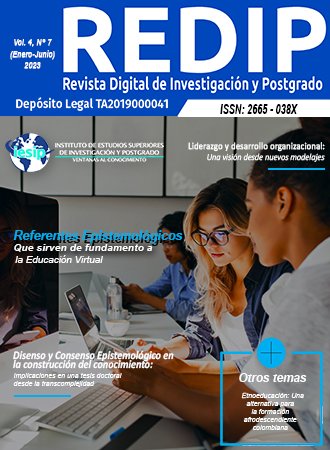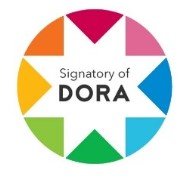Paulo Freire problematising education
An anthropological and epistemological turn of being
DOI:
https://doi.org/10.59654/sxfadh42Keywords:
Problematising education, Freire, epistemology of being.Abstract
The purpose of this article is to provide a theoretical reflection on the Freirean discourse on Paulo Freire's problematizing education, being of interest to address the author's contributions in terms of the anthropological and epistemological perspective that underlies the proposed educational methodology. This reflective document is based on giving an interpretative body to a problematising
education based on Freire's (1970, 1971), which is based on educational praxis as a dialogical
and democratic action subject to concepts such as: pedagogy, emancipation, politics, social
transformation, banking education, dialogue and dialectics, which allow us to reveal the intentions in the educator-educatee interrelationships. Furthermore, it is complemented by the approaches of Walsh (2013), Cabaluz (2015), Dussel (2013), De Souza Silva (2013), among others. The methodology was framed within the interpretative approach in the hermeneutic modality, with a bibliographic documentary analysis design, supported by the contents of the different sources. As a final reflection, it is expressed that problematising education, from the anthropological perspective, sees the being as an unfinished project in constant construction where liberating education invites the subject to become aware of its paradigmatic role in the transformation of its oppressive reality.
Downloads
References
Cabaluz, D. F. (2015). Entramando Pedagogías Críticas Latinoamericanas. Notas teóricas para potenciar el trabajo político-pedagógico comunitario. Editorial Quimantú Colección: A-probar.
De Souza Silva, J. (2010). La pedagogía de la pregunta y el ‘día después del desarrollo: Hacia la educación contextualizada para construir el buen vivir en el mundo rural latinoamericano. Documento de apoyo a la presentación del autor, el día 8 de julio de 2010, en el “III Congreso Nacional de Educación Rural” realizado en Medellín, Colombia
Dussel, E. (2012). Erótica y Pedagógica. Para una ética de la liberación Latinoamericana. Editorial Docencia.
Fanón, F. (1963). Los condenados de la tierra. Editorial Fondo de Cultura Económica.
Freire, P. (1969). Educación como práctica de la libertad. [Edición revisada, septiembre 2009]. Siglo Veintiuno Editores.
Freire, P. (1970). Pedagogía del oprimido. Siglo XXI Editores.
Pérez, O. C., García, L. G. A. Pérez, J. y C. E. (2012). La escuela: discursos, prácticas, rupturas y tensiones. Editorial Unicach.
Rodríguez, L., Marín, C,. Moreno, S. M., Rubano, M. del C y. Freire, P. (2007).Uuna pedagogía desde América Latina Ciencia, Docencia y Tecnología, 7(34), 129-171. Universidad Nacional de Entre Ríos Concepción del Uruguay, Argentina.
Streck, D, Rendín E y Zitkoski J (2015),Diccionario. Paulo Freire. Editorial CEAAL, Consejo de Educación Popular de América Latina y el Caribe.
Walsh, C. (2013). Introducción. Lo pedagógico y lo decolonial: Entretejiendo caminos. En: Pedagogías decoloniales. Prácticas insurgentes de resistor, (re) existir y (re)vivir. Tomo I. Editorial Abya-Yala.
Downloads
Published
Issue
Section
License
Copyright (c) 2023 Revista Digital de Investigación y Postgrado

This work is licensed under a Creative Commons Attribution-NonCommercial-ShareAlike 4.0 International License.
Esta licencia permite a los reutilizadores distribuir, remezclar, adaptar y desarrollar el material en cualquier medio o formato únicamente con fines no comerciales, y solo siempre que se atribuya al creador. Si remezclas, adaptas o construyes sobre el material, debes licenciar el material modificado bajo términos idénticos. CC BY-NC-SA incluye los siguientes elementos:
![]() POR: se debe dar crédito al creador.
POR: se debe dar crédito al creador.![]() NC: Sólo se permiten usos no comerciales de la obra.
NC: Sólo se permiten usos no comerciales de la obra.![]() SA: Las adaptaciones deben compartirse en los mismos términos.
SA: Las adaptaciones deben compartirse en los mismos términos.











